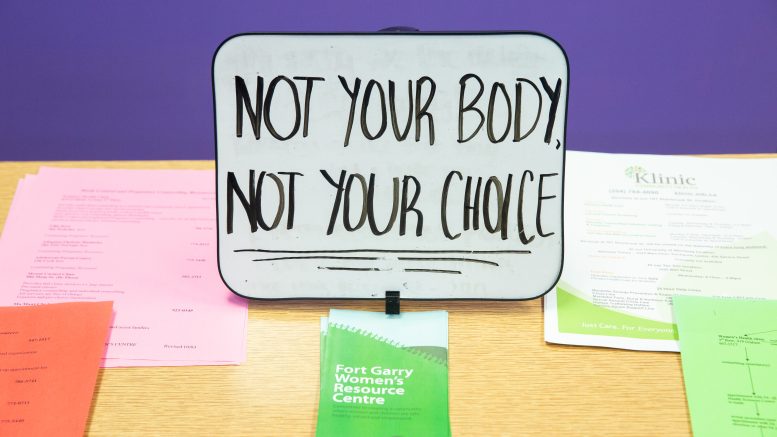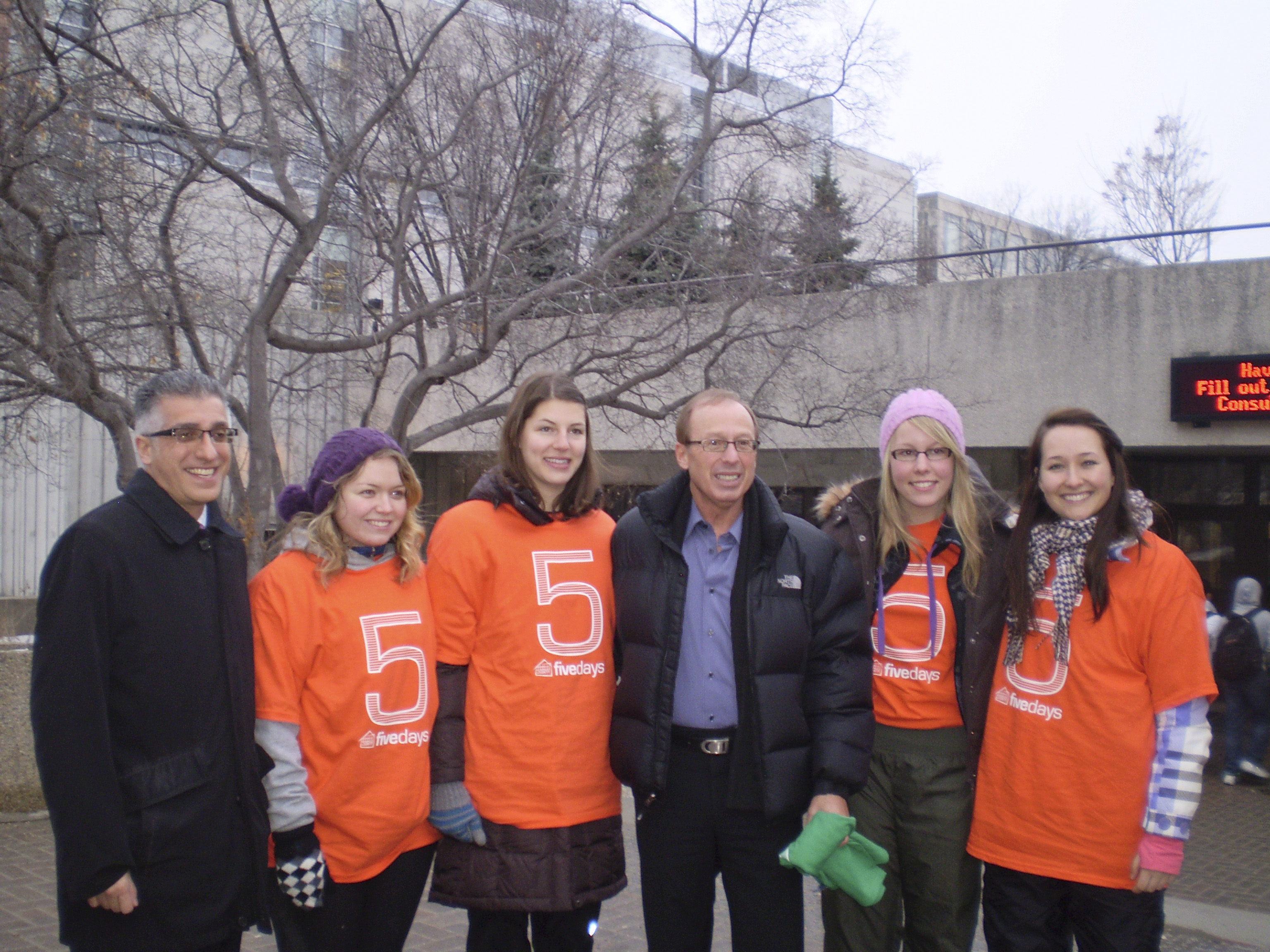In response to anti-abortion groups on campus, the Women’s Centre at the University of Manitoba, alongside Justice for Women Manitoba and the Arts Student Body Council, held an alternative “pro-choice initiative.”
On March 29, the Women’s Centre took to Instagram to inform students of its initiative and to clarify that it would not be a counter-protest, citing “negative experiences in the past” as one reason why.
“We feel that it is too big of a risk for our students’ mental health,” the Instagram post read.
This marks a change from the centre’s counter-protest in the fall, where its members and supporters gathered across from the anti-abortion group.
UMSU women’s representative Christine Yasay explained that at the fall counter-protest, those who opposed the right to choose would come to debate about the matter, and that counter-protestors “essentially had to debate why we should have rights, which is a very uncomfortable and emotionally tolling thing to do.”
“I didn’t want to do that again,” she said. “I felt like it put the mental health of our students at risk.”
To provide support to students, the Women’s Centre was open on Wednesday from 1 p.m. to 5:30 p.m., Thursday from 10 a.m. to 4 p.m. and on Friday from 1 p.m. to 5 p.m.
Yasay said that holding the initiative at the Women’s Centre was a way to demonstrate that “there is a presence on campus that is here for you and does support your right to choose whatever it is that is best for your body.”
During this time, the Women’s Centre provided resources to students, as well as material for students to use to write their own messages and statements about their bodily autonomy and the right to choose.
Yasay said she hopes the Women’s Centre can work alongside the U of M administration to ensure that misinformation regarding abortion is not being spread on campus. At present, signs displayed on campus state that the group protesting abortion is allowed on university grounds in the name of “the free exchange of ideas, freedom of expression and academic freedom.”
“I’m not quite sure what will happen next, but I do think it’s really important that the mental health and the well-being of our students are put first,” Yasay said.
Clèche Kokolo, vice-president of external affairs for the Women’s Centre, said that the initiative came about by listening to the community’s concerns and seeing the need for a safe space where community members could receive support.
She said that the centre “really went further” than other initiatives.
“We extended the different safe space, we partnered up with different organizations, we extended the Women’s Centre hours to really make ourselves accessible to the community during this week of protests,” she said.
Compared to the fall counter-protest, Kokolo said that the focus of this effort was to ensure that students who may be affected by the protests “had a place to go.”
“It was just an approach that allowed people to do what they felt [was] best for them,” she said.





